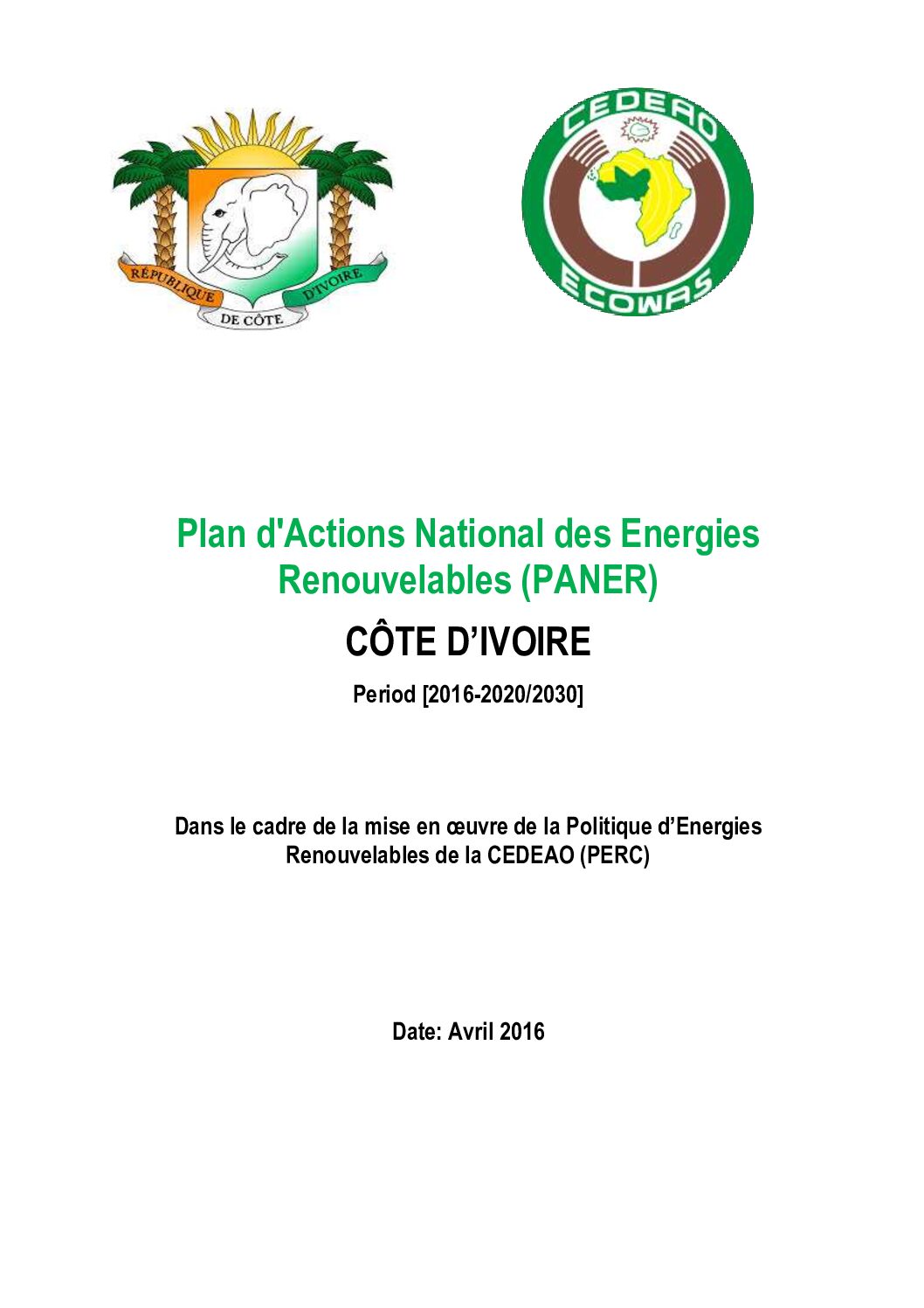This web page provides an overview of the energy sector of Côte d’Ivoire, including data on the energy mix, energy use and emissions; and a policy overview.
This brief provides a high-level overview of the status of Côte d’Ivoire’s off-grid solar markets, as well as relevant policies and programs.
This brief provides a high-level overview of the status of Madagascar’s off-grid solar markets, as well as relevant policies and programs.
This action plan, developed with support from ECREEE, lays out the bioenergy strategy of Côte d’Ivoire for 2021-2030. It includes an extensive background and context section, as well as strategic priorities and measures to promote these.
This action plan, developed with support from ECREEE, lays out the renewable energy strategy of Côte d’Ivoire for 2016-2020/2030. It includes information on strategic priorities and measures to promote these.
This action plan, developed with support from SEforALL and ECREEE, lays out the energy access strategy of Côte d’Ivoire for 2016-2020/2030. It includes extensive background and context as well as information on strategic priorities and measures to promote these.
This website contains a range of learning resources on Integrated Resource Planning (a methodology for least-cost planning by public utilities), including load forecasting, tariff policies, amd demand side management. It also includes exercises and case studies.
This report explores ways to identify and mitigate energy transition investment risks in the low- and middle-income countries, pointing out 1) that better energy planning can attract greater investment in renewable energy, 2) that sustainable fuels will play an important role in delivering the energy transition, and 3) that the social dimensions of the transition […]
This guidebook summarizes a broad range of policy and financial instruments that governments can implement to foster the development of the interconnected mini-grid market, driven by the private sector.
This article explores how system planning, and in particular assessments of system adequacy, will need to innovate and evolve to allow power systems to keep delivering secure and affordable electricity supply during energy transitions.





